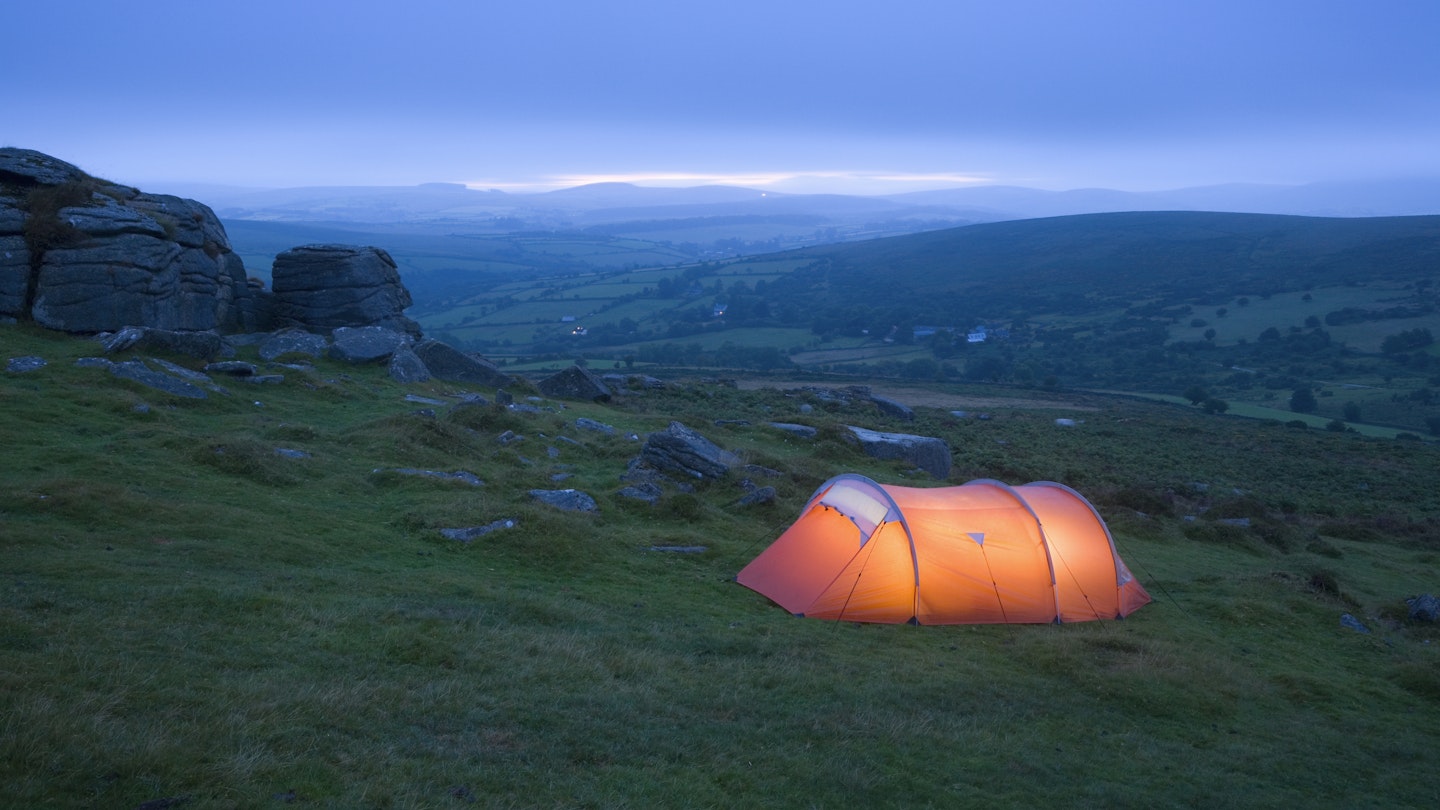Dartmoor National Park: Wild Camping Rights Restored
According to a local legend, when a wealthy businessman sought to profit by farming on Dartmoor, Old Crockern – the mythological protector of the moors – cursed the venture and drove the man away. That same spirit may have surfaced again recently, as campaigners won a long-fought legal battle to regain the right to wild camp in the national park.
Until recently, the right to freely camp in Dartmoor National Park in Devon, without seeking landowner’s permission, was assumed to be protected by a local bylaw. This made Dartmoor the only location in England where wild camping remained legal. However, this right was challenged earlier this year when Alexander Darwall, a hedge-fund manager and Dartmoor’s sixth-largest landowner, claimed in a court case against the Dartmoor National Park Authority (DNPA) that this right had never existed.
The ruling on January 13, 2023, sparked one of the UK’s largest-ever countryside-access protests, with more than 3000 people demonstrating on the moors, with some invoking Old Crockern in their fight against Darwall. Shortly afterward, the DNPA decided to appeal the ruling, supported by the Open Spaces Society, whose legal team worked pro bono.
Dartmoor: England’s Wild Camping Holdout
Dartmoor’s vast, windswept landscapes may feel like a wilderness, yet all land within the national park is privately owned. Nevertheless, visitors have long enjoyed the right to explore freely across the park. The Dartmoor Commons Act 1985 protects the historic tradition of access “to all the commons on foot and on horseback for the purposes of open-air recreation.”
For decades, authorities have interpreted “open-air recreation” to include wild camping. The DNPA even outlined a map of designated wild-camping areas in Dartmoor, along with a strict Code of Conduct for campers.
Darwall and his supporters claimed that many visitors did not adhere to these rules, resulting in damage to estates and issues with livestock and the environment. Yet, campaigner and camping expert Tom Sigler emphasized that wild camping “has been enjoyed responsibly by generations who understand leave-no-trace principles.”
The Ban Overturned
On July 31, 2023, three judges at the Court of Appeal ruled unanimously to overturn the January ruling. The pivotal question was whether wild camping constituted open-air recreation. Pamela Woods, chair of the DNPA, stated that the authority “firmly believed” that the Commons Act allowed for backpack camping in certain areas of common land as a form of open-air recreation without needing permission from landowners.
All three judges concurred at the appeal hearing. Master of the Rolls and Head of Civil Justice Sir Geoffrey Vos stated, “The fact that a tent is closed rather than open cannot convert the wild camping from being an open-air recreation into not being one,” concluding that open-air recreation allows members of the public to rest and sleep, whether by day or by night, whether on the ground or in a tent.
The Decline of Right to Roam in England
The protests following Darwall’s legal case were not solely about the loss of England’s last legal wild-camping location; they also sparked broader discussions surrounding the reduction of Britain’s “right to roam.” Currently, the public is banned from 92% of England’s countryside and 97% of its rivers.
The Right to Roam campaign advocates for legislation akin to that in Scotland, where the Land Reform (Scotland) Act 2003 established the right to responsible public access to most land for open-air recreation. Various organizations, including British Canoeing, Ramblers, and the British Mountaineering Council, all voiced opposition against the wild-camping ban in Dartmoor while calling for expanded public access to nature.
What to Expect for Wild Campers in Dartmoor
For travelers to Dartmoor, conditions remain similar to before the Darwall case. Wild camping is once again permissible in most areas of the national park, provided you adhere to the established Code of Conduct.
Campers must carry their own equipment and stay no longer than two nights. Following “leave no trace” principles is vital in protecting the fragile ecosystem that makes Dartmoor so special, ensuring its preservation for future generations.
This article was first published Jan 23, 2023, and updated Aug 8, 2023.




